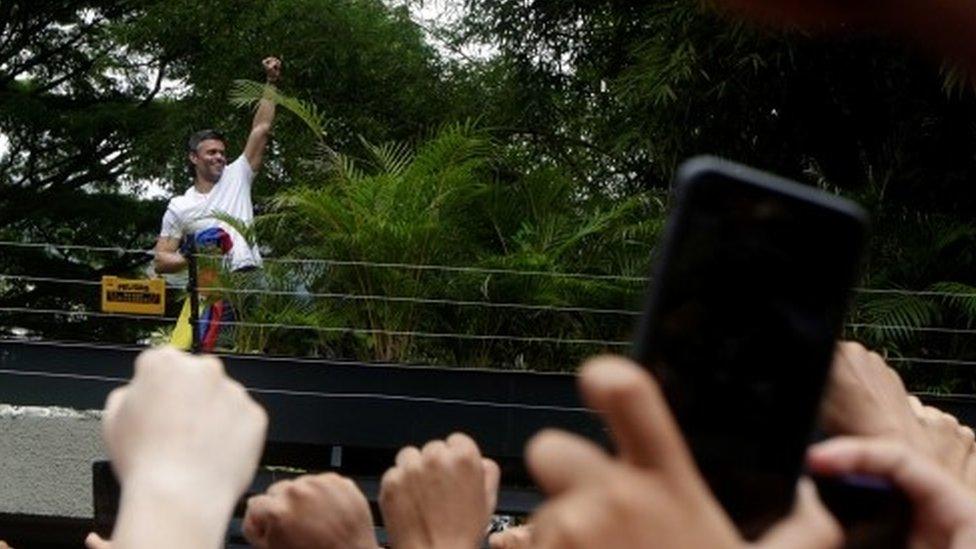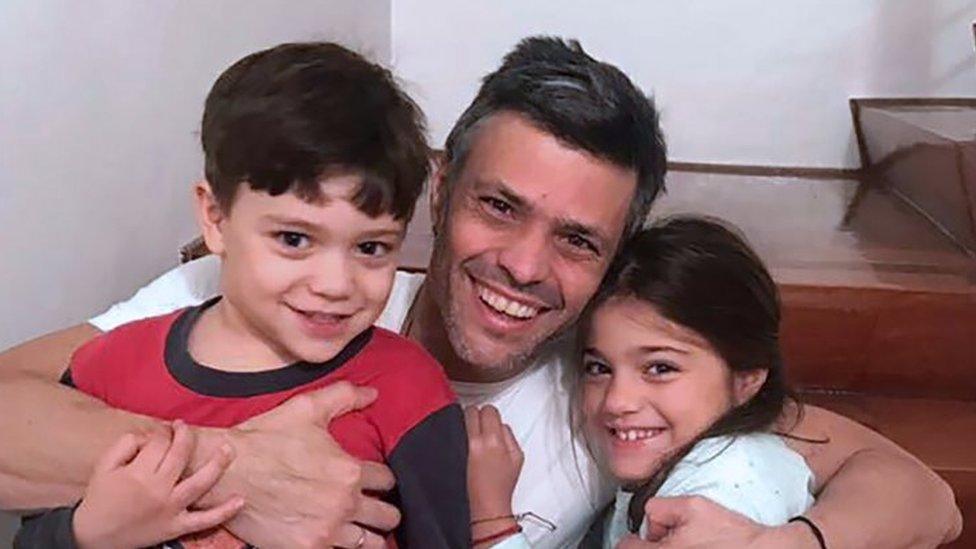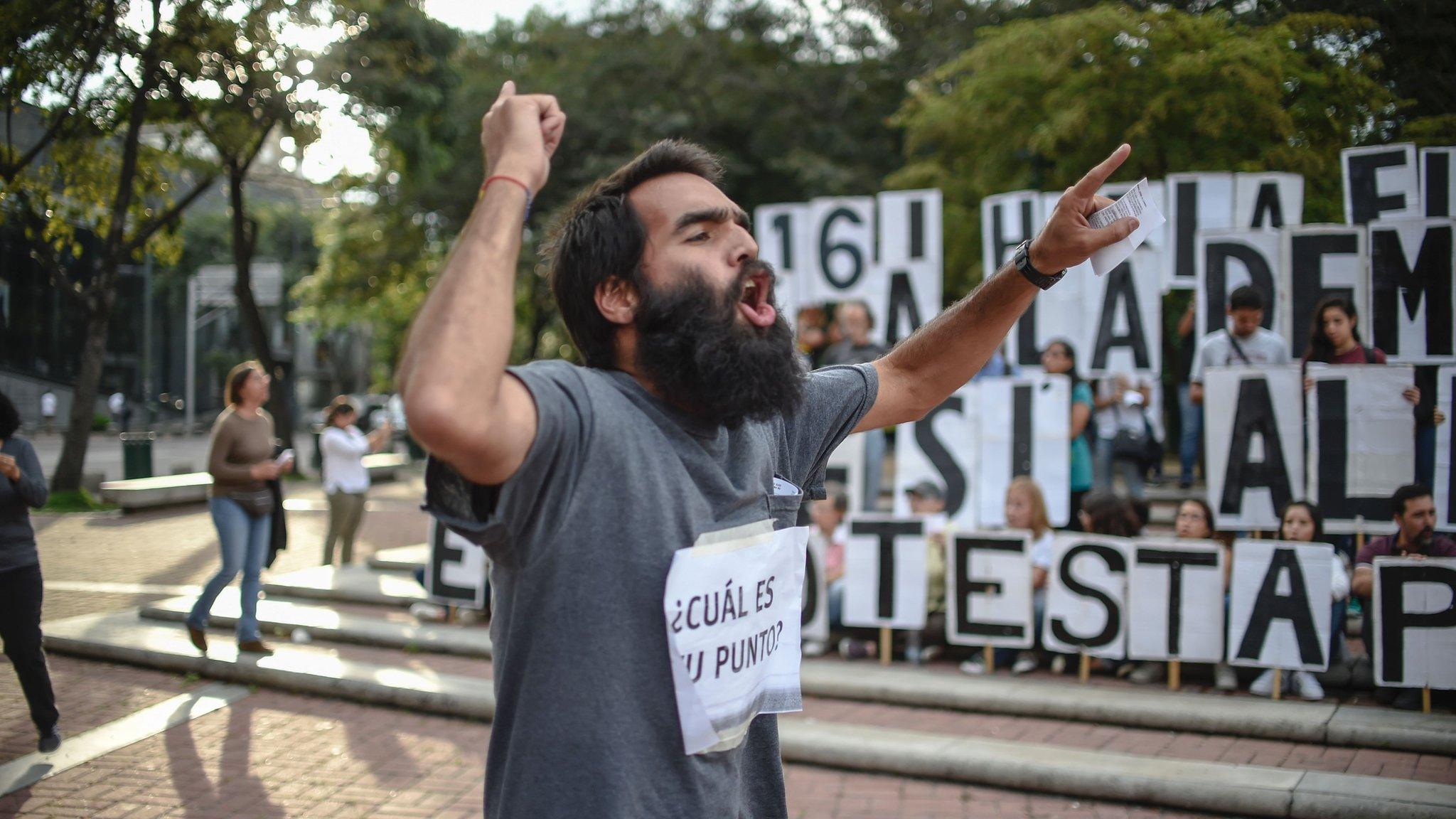Venezuela: Maduro praises opposition leader López's prison release
- Published

Mr Lopez (above) was cheered by jubilant supporters outside his home in Caracas
Venezuelan President Nicolás Maduro has praised the decision to release from prison one of the country's main opposition leaders, Leopoldo López.
Mr López has been moved to house arrest after more than three years in jail.
He left a prison near Caracas and was reunited with his family on Saturday.
Mr López was serving a 14-year sentence for inciting violence during anti-government protests in 2014, a charge he has always denied. The Supreme Court said he was released on health grounds.
Mr Maduro said he "respected" and "supported" the Supreme Court's decision but called for "a message of peace and rectification" in the country.
Hours after being freed, Mr López urged supporters to continue protesting in the streets against Mr Maduro.
Venezuela's opposition and international powers have long pressed for his freedom. The head of the Organisation of American States regional bloc, Luis Almagro, said the court's decision offered an opportunity for national reconciliation.
Henrique Capriles, a former opposition presidential candidate, stressed "he must be given his full liberty together with all political prisoners", Reuters reported.

The opposition leader was joyfully reunited with his children
Giving a glimpse of his son's life behind bars, Mr López's father told Spanish radio "a few days ago they had punished him with solitary confinement without light or water for three days".
He said his son was now wearing an electronic tag so that the authorities could keep abreast of his movements.
His wife had complained that she had not been allowed to see him for more than a month, but on Friday she tweeted she had been allowed an hour-long meeting.
In May, a government lawmaker published a video of Mr López in his cell following rumours that he had been poisoned and taken to hospital.
Leopoldo Lopez's "proof of life" video
In the video, Mr López - a Harvard-educated former mayor who has been prevented by the government from standing for public office - said he was well and did not know why he was being asked to prove he was still alive.
Venezuela has been experiencing a wave of anti-government protests similar to those over which Mr López was jailed.
The opposition is calling for early elections and the release of opposition politicians jailed in recent years, saying the socialist governments of President Maduro and his predecessor, the late Hugo Chávez, have mismanaged the economy since coming to power in 1999.

What's happening in Venezuela?
Your video guide to the crisis gripping Venezuela
The country is in a deep economic crisis, made worse by the falling price of oil, which accounts for about 95% of its export revenues and was used to finance some of the government's generous social programmes. Forced to make cuts, Mr Maduro has seen his support fall among core backers
Also, as a result of the crisis, parts of Venezuela face severe shortages of basic supplies such as medicine and food
The opposition accuses Mr Maduro of not only mismanaging the economy but also eroding the country's democratic institutions
In March, the Supreme Court decided it would take over the National Assembly. The decision was reversed, but Mr Maduro was accused by opponents of trying to stage a coup. That sparked almost daily protests calling for his resignation
Meanwhile, Mr Maduro says the opposition is trying to overthrow his government illegally, and blames the country's problems on an "economic war" being waged against him
- Published2 August 2017
